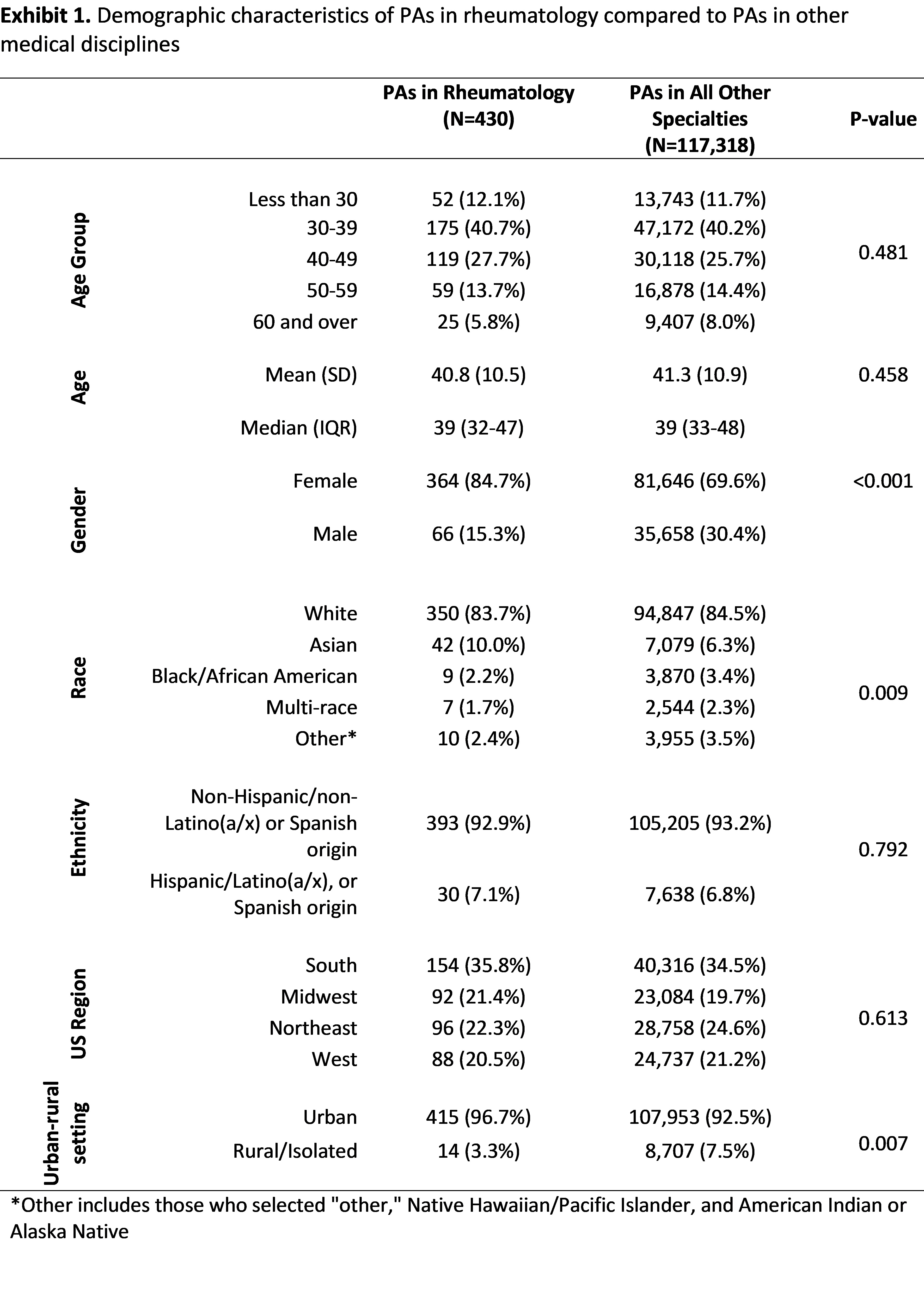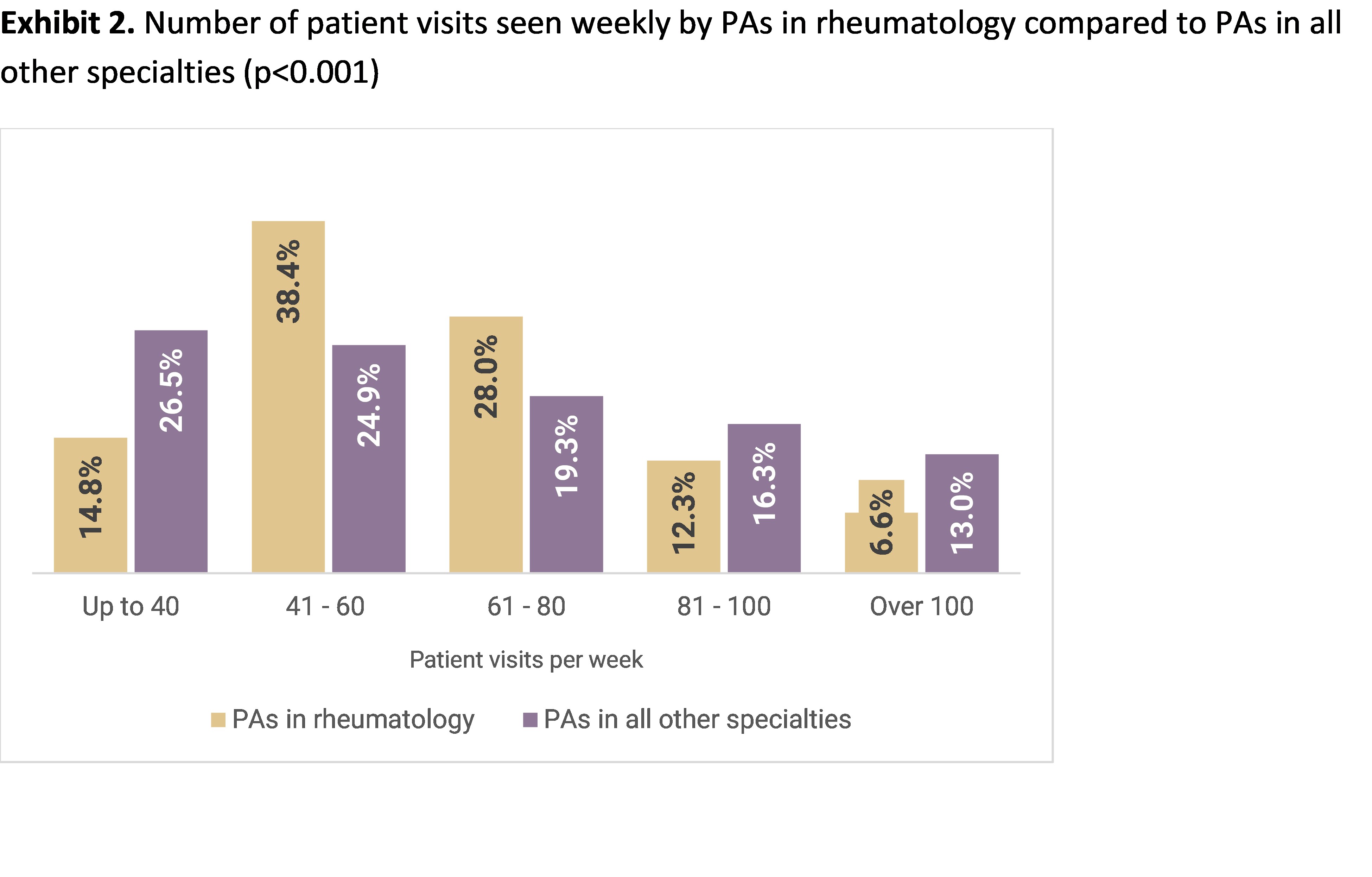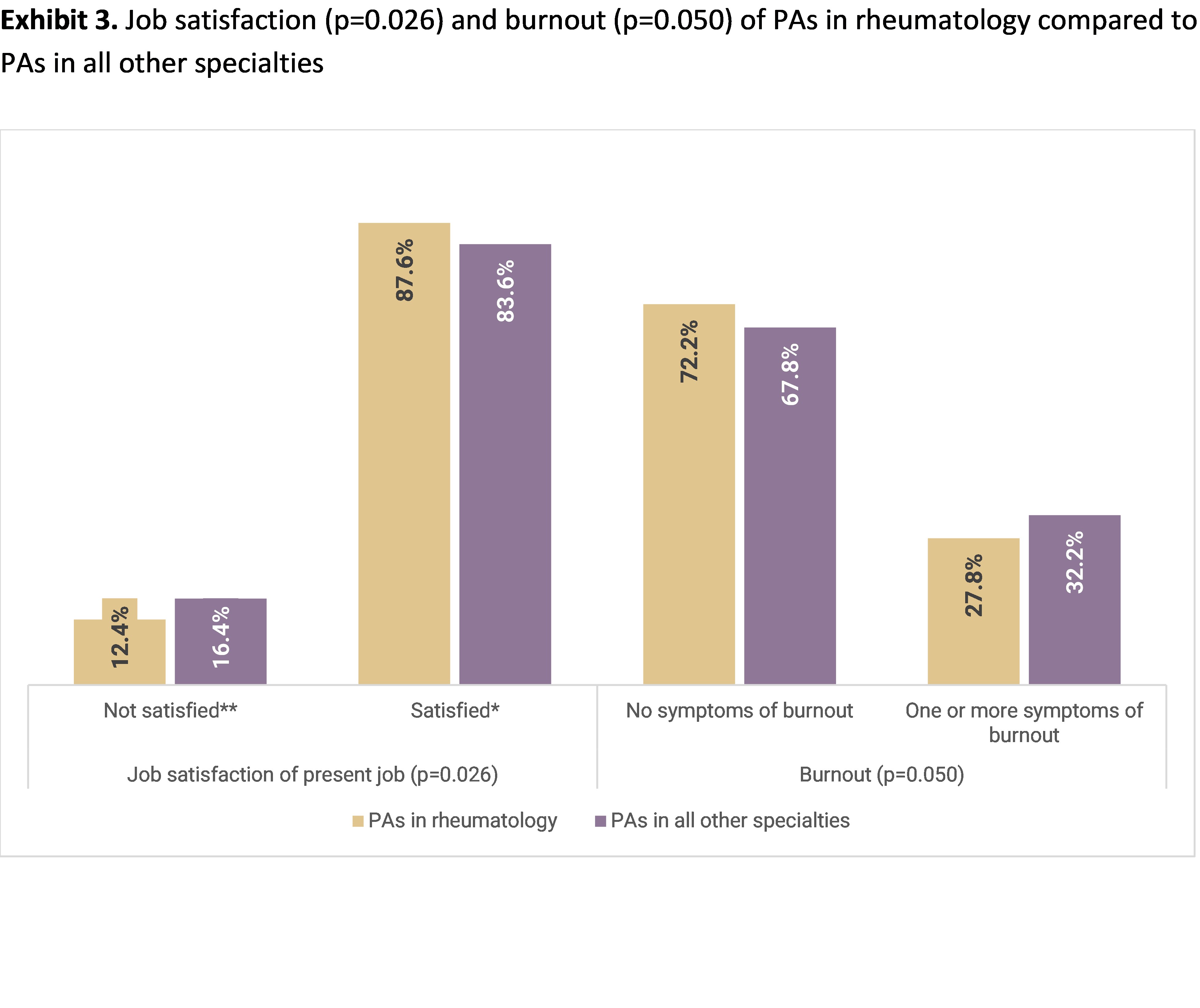Session Information
Session Type: Poster Session C
Session Time: 10:30AM-12:30PM
Background/Purpose: The United States needs more rheumatologists, facing a growing population in size and age, an aging physician workforce, a shortage of replacement rheumatologists, and a healthcare demand system that exceeds supply.
The American College of Rheumatology Work Study estimated a 30.9% decrease in the supply of rheumatologists from 2015 to 2030. Concurrently, the supply of physician assistants/associates (PAs) is forecasted to increase by 45.3% during the same period. We assessed the number of clinically active rheumatology PAs. The objective is to provide a skilled labor component to the supply and demand for national rheumatology service delivery modeling.
Methods: The 2022 National Commission on Certification of PAs (NCCPA) workforce dataset delineates PAs employed in rheumatology practices. The annual census involves the demographic and practice characteristics of PAs in rheumatology compared to those in all specialties. Our analysis consisted of descriptive and bivariate statistics to measure this growing workforce.
Results: In 2022, 430 board-certified PAs reported practicing in rheumatology, a growth rate of 93.7% since 2015 (n=222). They were compared to 158,470 PAs board-certified PAs the same year. The median age was 39 years, and 85% were female. Most (78.8%) worked in office-based private practices and were more likely to participate in telemedicine services (62.5%) than their colleagues (40.2%) across other disciplines. The median salary was $105,000 (2022 dollars). PAs in rheumatology work similar hours but see more patients than their counterparts in other specialties. Two-thirds (66.4%) of PAs in rheumatology see between 41-80 patients each week compared to a smaller number of patients by all other PAs. Concurrently, rheumatology PAs report being more satisfied with their clinical positions and less burnt out when compared to those in non-rheumatology settings.
Conclusion: PAs are a strategy for meeting the growing supply and demand gap in rheumatology service delivery. The PAs’ size, trajectory, and practice settings in clinical rheumatology are expanding during physician shortages. Their relative youth and female are in contrast to an older and male rheumatology physician force. This rheumatology PA survey is a stepping stone to national medical workforce planning estimates of this vital medical specialty.
To cite this abstract in AMA style:
Smith B, Hooker R, Bruza-Augatis M, Puckett K, Kozikowski A. The Rheumatology Physician Assistant/Associate Workforce [abstract]. Arthritis Rheumatol. 2024; 76 (suppl 9). https://acrabstracts.org/abstract/the-rheumatology-physician-assistant-associate-workforce/. Accessed .« Back to ACR Convergence 2024
ACR Meeting Abstracts - https://acrabstracts.org/abstract/the-rheumatology-physician-assistant-associate-workforce/



